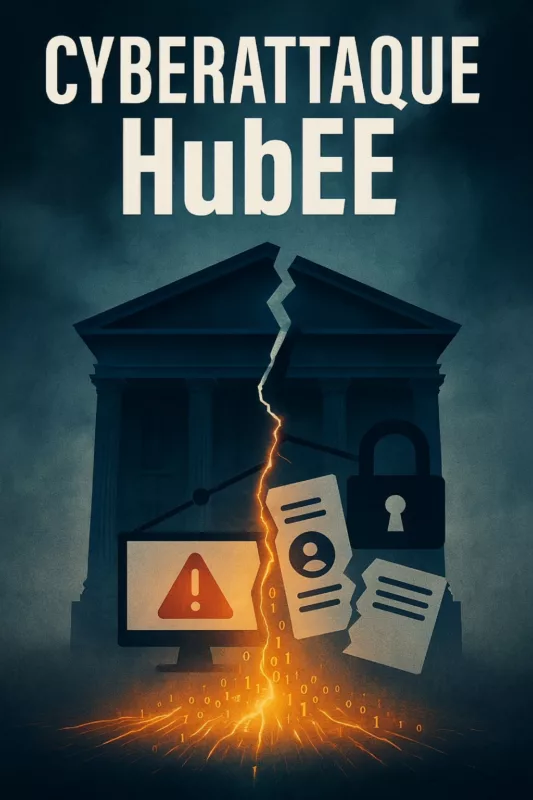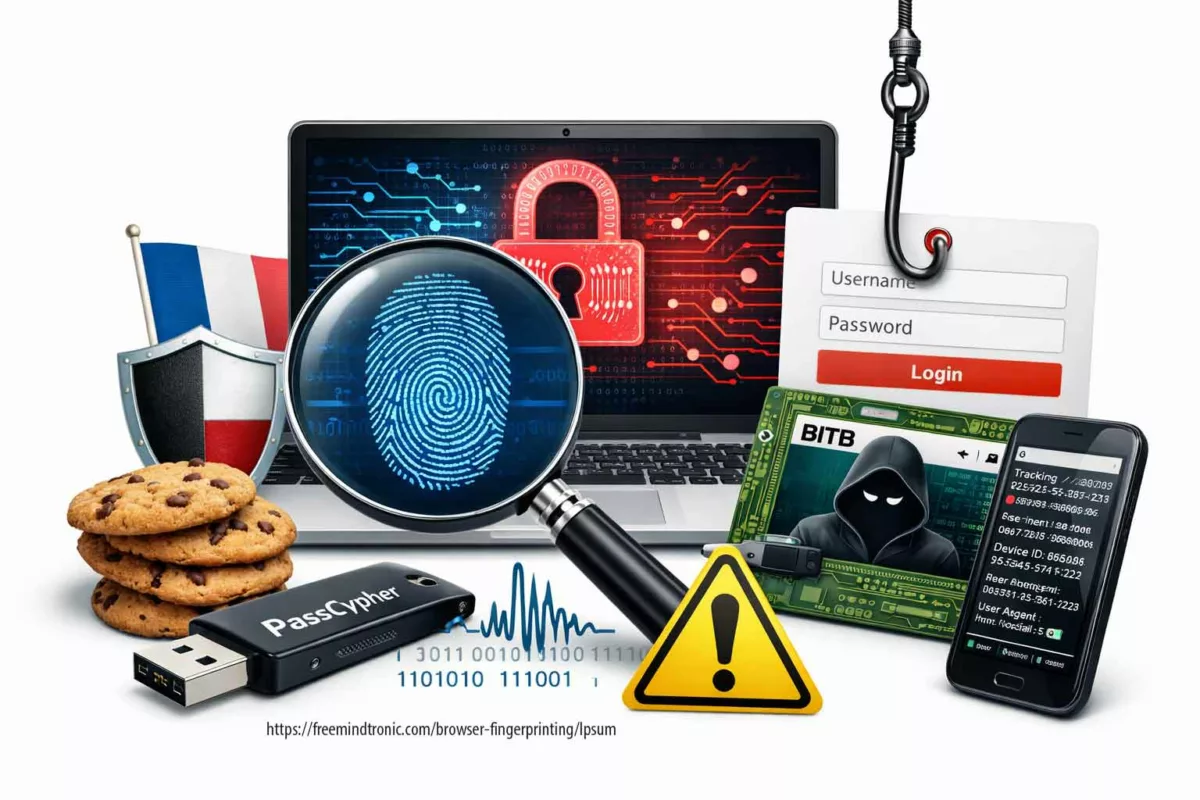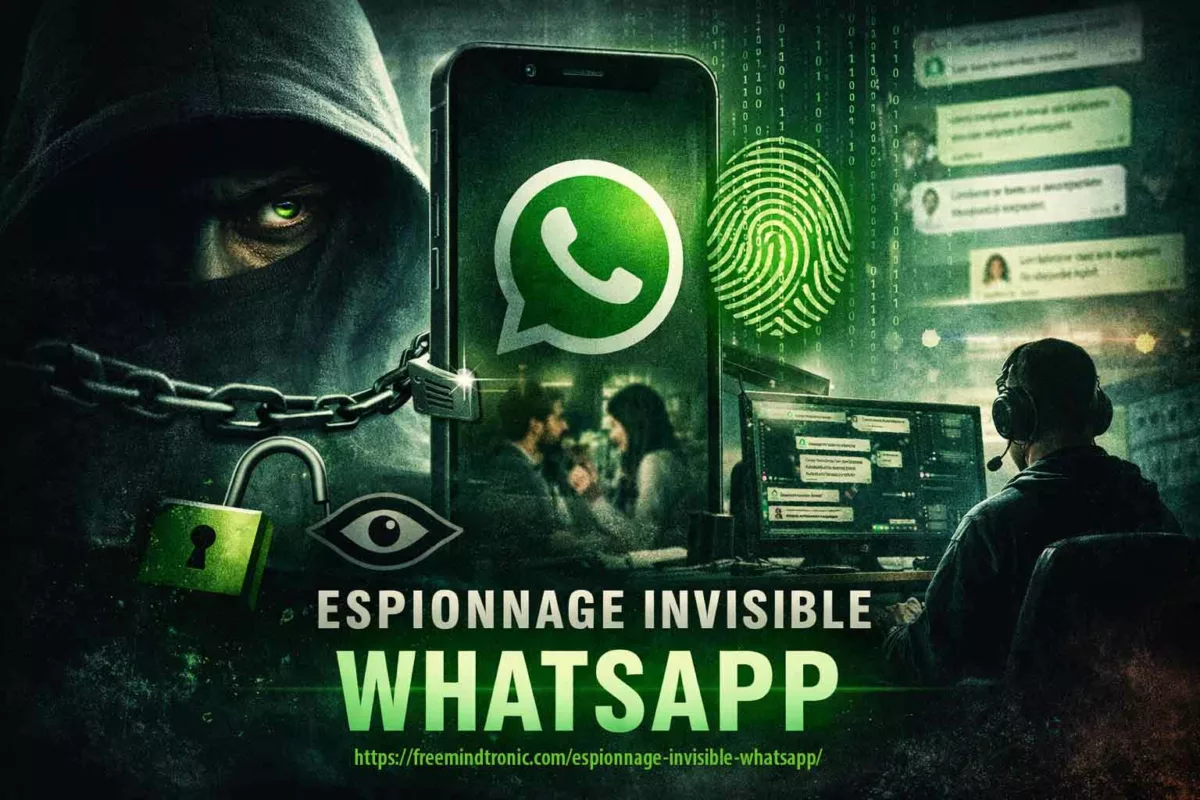Articles, Digital Security, News
How to Recover and Protect Your SMS on Android
Recover and protect your SMS hack by Jacques Gascuel: This article will be updated with any new information on the topic.
Guard Your SMS: Protect & Recover Android Texts
SMS are one of the most common ways of communication in the digital world. They can contain important information, such as personal messages, bank details, verification codes, and more. However, Various factors such as accidental deletion, device malfunction, virus attack, or theft can cause the loss, deletion, or compromise of SMS.
Recover and Protect Your SMS on Android: A Complete Guide
First of all, SMS are a popular communication tool on Android smartphones. They allow you to share information, emotions, memories with your loved ones or professional contacts. But what if you lose your SMS by accident or maliciously? How can you recover and protect them?
In the following sections, we will show you how to restore your permanently deleted SMS on Android with different methods, such as Google Drive backup, Samsung Messages trash or third-party apps.
Moreover, we will address the recovery of SMS that are supposed to be permanently deleted or inaccessible intentionally. Malicious people recovering these SMS can cause significant harm or even be vital. That’s why, we will show you how to secure your sensitive SMS even in case of recovery, interception or unauthorized access with EviCypher NFC HSM technology, developed by Freemindtronic, an Andorran company specialized in NFC security.
Finally, as an inventor of counter-espionage, security and cybersecurity solutions at Freemindtronic, the illicit recovery of sensitive data such as SMS often has serious consequences. We are also the first to introduce you to this innovative technology, which allows you to encrypt your SMS with your own encryption keys stored in a secure NFC device. By following this guide, you will be able to recover and protect your SMS on Android easily and effectively, while preserving your privacy, avoiding fraud and backing up your data.
Why Recover Your Deleted SMS on Android?
You may have deleted an important SMS on your Android smartphone by mistake. Or maybe you deleted an SMS on purpose, but regretted it later. Or maybe you lost your SMS because of a bug, a virus or a theft of your phone.
In all these cases, you can try to recover your deleted SMS with different methods. This can help you find useful information, precious emotions or unforgettable memories. It can also prevent problems or misunderstandings with your interlocutors.
However, these methods are not guaranteed to work and may have some drawbacks. For example, some of them may require you to reset your phone to factory settings, which erases all your data. Others may require root access to your phone, which voids your warranty and exposes your phone to security risks.
Below, here are some of the methods you can use to recover your permanently deleted SMS on Android.
Method 1: Recover Deleted SMS from Google Drive Backup
One of the simplest methods to recover permanently deleted SMS on an Android smartphone is to restore them from a Google Drive backup. Google Drive is an online storage service that lets you backup your data, including your messages, contacts, photos and more.
To use this method, you must have enabled Google Drive backup on your phone before deleting your messages. You must also have a backup that contains the messages you want to recover. Finally, you must reset your phone to factory settings and restore it from the backup.
Here are the steps to follow:
- Backup all the important files on your phone that are not in the Google Drive backup.
- Go to Settings > System > Reset options > Erase all data (factory reset).
- Follow the instructions on the screen to complete the reset process.
- When your phone restarts, sign in with the Google account you used to make the backup.
- Choose to restore your phone from the Google Drive backup that contains your messages.
- Wait for the restoration to finish and check if your messages are back.
Method 2: Recover Deleted SMS from Samsung Messages Trash
If you have a Samsung smartphone and use the default Samsung Messages app, you may be able to recover deleted SMS from the trash. This is a feature that stores your deleted messages for 30 days before erasing them permanently.
To use this method, you must have enabled the Trash option in the Samsung Messages settings before deleting your messages. You must also act quickly, as the messages will be erased after 30 days.
Here are the steps to follow:
- Open the Samsung Messages app and tap on the three-dot menu icon in the top right corner of the screen.
- Tap on Settings > Trash.
- Select the conversation that contains the messages you want to recover.
- Tap on Restore and confirm your choice.
- Check if your messages are back in the conversation.
Method 3: Recover Deleted SMS with Third-Party Apps
If none of the above methods work for you, you may still have a chance to recover deleted SMS with third-party apps. These are apps that scan the memory of your phone and try to find and restore all the deleted data, including messages.
However, these apps are not guaranteed to work and may have some drawbacks. For example, some of them may require root access to your phone, which can void your warranty and expose your phone to security risks. Some of them may also charge you fees or display ads. Moreover, some of them may not be compatible with your phone model or Android version.
Therefore, before using a third-party app, make sure to read carefully its reviews, ratings, features, permissions and terms of use. Also backup all the important data on your phone before using an app that can modify or erase them.
Some of the popular third-party apps to recover deleted SMS on Android are:
- FoneDog Android Data Recovery: This app claims to recover deleted text messages on Android without root. It also supports the recovery of other types of data, like contacts, photos, videos, WhatsApp messages, etc. It offers a free trial version and a paid version.
- Dr.Fone – Data Recovery (Android): This app claims to be the world’s first Android data recovery software. It supports the recovery of various types of data on Android devices with or without root. It also offers other features, like backup and restore, screen unlock, system repair, etc. It offers a free trial version and a paid version.
- SMS Backup & Restore: This app is not a recovery app per se, but a backup and restore app. It lets you backup your SMS and call logs on your phone, Google Drive, Dropbox or email. It also lets you restore them on your phone or another phone. It is a free app with ads and in-app purchases.
Statistics on Data Leaks by SMS or RCS
SMS and RCS are widely used communication channels, both for personal and professional exchanges. However, they are not immune to data leaks, which can have serious consequences for users and businesses. To illustrate these risks, here are some statistics:
- A study by Thales found that 45% of businesses suffered a data breach or failed an audit involving data and applications in the cloud in 2021, up from 35% in 2020.
- Employee errors were the biggest threat to sensitive or confidential data within their organizations in 2021, according to 47% of respondents in a study by Varonis. This means that employees can delete or send by mistake SMS containing sensitive or confidential data to unauthorized recipients.
- Infobip reported that 60% of consumers read their SMS within 5 minutes of receiving them. This means that an SMS sent by mistake or intercepted by a third party can be read very quickly and cause harm to its recipient.
- CM.com revealed that 75% of consumers use SMS to communicate with businesses. This implies that SMS often contain personal or professional information that can be exploited by hackers or competitors.
- Juniper Research expects the number of RCS messages sent per year to reach 1.9 trillion in 2023. This represents an opportunity for businesses to offer enriched experiences to their customers, but also a challenge to protect these messages from data leaks.
These statistics show that SMS and RCS are popular but vulnerable communication vectors. It is therefore essential to protect your messages from malicious recovery attempts, using a technology like EviCypher NFC HSM. By following this guide, you will learn how to recover and protect your SMS on Android with EviCypher NFC HSM technology.
Real examples of data leaks by SMS or RCS
To illustrate the potentially serious consequences of a data leak by SMS or RCS, here are some real examples from the news. These examples show how important it is to recover and protect your SMS on Android devices. You never know who might try to access your messages and what they might do with them.
- In 2018, Uber’s CEO, Dara Khosrowshahi, accidentally sent an SMS to a Wall Street Journal reporter instead of a board member. The SMS contained confidential information about Uber’s strategy in Asia and its relationship with SoftBank. The reporter published the SMS in his article, which caused embarrassment and a loss of credibility for Uber. If Uber had used EviCypher NFC HSM technology to recover and encrypt their SMS, they could have avoided this situation.
- In 2019, François de Rugy, the French Minister of Ecological and Solidarity Transition, was forced to resign after the revelation of his lavish expenses. Among the evidence that incriminated the minister, there were SMS that he had sent to his wife and that were recovered by the magazine Mediapart. The SMS showed that the minister boasted of having organized lavish dinners at the taxpayer’s expense.
- In 2020, US President Donald Trump was accused of pressuring Ukrainian President Volodymyr Zelensky to investigate his political rival Joe Biden. One of the key pieces of evidence in the impeachment case was an SMS sent by Gordon Sondland, the US ambassador to the European Union, to Bill Taylor, the US chargé d’affaires in Ukraine. The SMS said: “The president has been clear: no quid pro quo of any kind”. This SMS was interpreted as an attempt to conceal the blackmail exerted by Trump on Zelensky.
- In 2021, the Indian government was accused of spying on journalists, activists and political opponents with the Pegasus spyware. This software allowed infiltrating smartphones and accessing messages, calls, photos and location of the targets. To infect smartphones, the software sent SMS or missed calls containing a malicious link to infiltrate smartphones. Several victims claimed to have received suspicious SMS before their phones were hacked.
- In 2021, Orange, the French telecommunications group, was victim of a cyberattack that exposed the personal data of 15 million customers. The hackers exploited a flaw in Orange’s platform for sending promotional SMS, which contained information such as names, first names, dates of birth, phone numbers and email addresses of customers. Orange said it had fixed the flaw and filed a complaint against the perpetrators of the attack.
- In 2021, Signal, the secure messaging service, revealed that Cellebrite, an Israeli company specialized in extracting data from smartphones, was able to decrypt SMS and RCS messages stored on Android devices. Cellebrite sells its tools to law enforcement and government agencies around the world, which poses risks for users’ privacy and security. Signal claimed to have found several flaws in Cellebrite’s software, which would allow compromising its data and analysis.
- In 2021, WeChat, the Chinese social network, was accused of collecting and sharing user data with the Chinese government. Among the data collected, there were SMS and RCS messages sent and received by users on their Android smartphones. WeChat denied these accusations, but several countries such as India, the United States or Australia have banned or restricted the use of the app for national security reasons.
These examples show how important it is to recover and protect your SMS on Android devices. You never know who might try to access your messages and what they might do with them. That’s why we recommend using EviCypher NFC HSM technology to encrypt your SMS with your own encryption keys stored in a secure NFC device. This way, you can prevent any unauthorized access or interception of your sensitive messages. By following this guide, you will be able to recover and protect your SMS on Android easily and effectively.
How to recover and protect your calls, SMS, MMS and RCS on Android
You may wonder if someone can intercept and listen to your calls, SMS, MMS and RCS on your Android device. The answer is yes, it is possible, but it requires some skills and tools that are not easily accessible to the average user. However, you should be aware of the risks and the methods that hackers, companies or governments can use to spy on your communications. In this section, we will show you how to recover and protect your calls, SMS, MMS and RCS on Android with EviCypher NFC HSM technology.
An IMSI-catcher can capture your signals
An IMSI-catcher is a device that pretends to be a cell tower and captures the signals of nearby phones. It can collect information such as phone numbers, locations, contacts and messages of the targeted phones. It can also redirect or block calls, SMS, MMS and RCS, or modify their content. An IMSI-catcher can be small or large, hidden in a car or a backpack, or cover a wider area.
A data extraction tool can access your memory
A data extraction tool is a software or a hardware tool that can extract data from smartphones, such as Cellebrite, XRY or GrayKey. These tools can connect to a phone via USB or Bluetooth and access its memory, where calls, SMS, MMS and RCS are stored. They can also bypass the phone’s encryption or password protection, and recover deleted data. Law enforcement and government agencies often use these tools, but they can also fall into the wrong hands.
A spy app or a malware can monitor your activities
A spy app or a malware is a program that can be installed on a phone remotely or physically. It can run in the background and monitor all the activities of the phone, including calls, SMS, MMS and RCS. It can also record audio, take screenshots, track location and send all the data to a remote server or an email address. Some examples of spy apps or malware are mSpy, FlexiSPY, Pegasus or NSO Group.
EviCypher NFC HSM technology can encrypt your messages
These are some of the ways that someone can intercept and listen to your calls, SMS, MMS and RCS on your Android device. They are not easy to detect or prevent, but you can take some measures to protect yourself. For example, you can use encrypted apps like Signal or WhatsApp for your communications, avoid clicking on suspicious links or attachments in your messages, update your phone’s software regularly and use a strong password or biometric authentication for your phone. You can also use EviCypher NFC HSM technology to recover and protect your calls, SMS, MMS and RCS on Android with your own encryption keys stored in a secure NFC device. This way, you can prevent any unauthorized access or interception of your sensitive messages.
Why Protect Your Sensitive SMS with EviCypher NFC HSM?
You may have SMS that have a sensitive nature on your Android smartphone. They may be personal, professional or confidential messages that you do not want anyone else to read. But did you know that these messages can be recovered by malicious people who want to spy on your privacy, steal your personal or professional information, or blackmail you?
Indeed, there are data recovery methods that allow you to scan the memory of your phone and find and restore all the deleted data, including messages. These methods can be used by malicious people who have access to your phone or your Google Drive backup.
That is why it is important to protect your sensitive SMS with EviCypher NFC HSM, a technology that allows you to encrypt your messages with your own encryption keys. Thus, even if someone succeeds in recovering your deleted messages, they will not be able to read them without having access to your keys.
How Does EviCypher NFC HSM Work?
EviCypher NFC HSM is based on EviCore NFC HSM, which is a hardware security module that combines hardware encryption and NFC communication protocols to protect your keys and secrets. EviCypher NFC HSM allows you to store, manage, share and use encryption keys for various web services, such as email, online storage, cryptocurrency wallets, etc. It also allows you to encrypt and decrypt your SMS with your own keys.
EviCypher NFC HSM works with any Android smartphone with NFC capability. You can use different types of NFC devices, such as cards, stickers, keychains, etc. These devices are battery-free and powered by the NFC signal from your phone.
To use EviCypher NFC HSM to encrypt your SMS, you need to install the Freemindtronic (FMT) app on your phone and pair it with the NFC device that contains your encryption keys. Then, you can use the app to encrypt and decrypt your SMS with a simple gesture.
Here are the steps to follow:
- Download and install the FMT app from the Google Play Store or the Apple App Store.
- Launch the app and follow the instructions to create your account and set up your security settings.
- Tap on the NFC icon in the app and select the option to pair a new NFC device.
- Bring your phone close to the NFC device that contains your encryption keys. The app will detect the device and ask you to confirm the pairing.
- Once the pairing is done, you can see your encryption keys in the app. You can also create, import or export new keys if you want.
- To encrypt an SMS, open the FMT app and tap on the SMS icon. Select the contact you want to send an encrypted SMS to. Type your message and tap on the lock icon. The app will ask you to bring your phone close to the NFC device to encrypt your message with your key. Then, tap on the send icon to send your encrypted SMS.
- To decrypt an SMS, open the FMT app and tap on the SMS icon. Select the contact you received an encrypted SMS from. Tap on the encrypted message and tap on the unlock icon. The app will ask you to bring your phone close to the NFC device to decrypt your message with your key. Then, you can read your decrypted SMS.
Click [here] to learn how EviCypher NFC HSM technology works.
Then click [here] to learn more about EviCypher NFC HSM technology.
What Are the Benefits of EviCypher NFC HSM?
Using EviCypher NFC HSM offers several benefits to protect your SMS:
- It is easy to use and contactless. You do not need to type or remember passwords or codes. You just need to bring your phone close to the NFC device.
- It is secure and anonymous. Your encryption keys are never stored or transmitted online. They are only stored in the NFC device and used in the volatile memory of your phone. No one can access or trace them without having physical access to the device.
- It is flexible and versatile. You can use different encryption keys for different purposes and share them with other people securely. You can also use EviCypher NFC HSM for other web services besides SMS.
In conclusion
In this article, you have learned how to recover and protect your SMS on Android. You have discovered different methods to restore your messages erased by mistake or maliciously, as well as the risks and limitations of these methods. You have also understood how to secure your sensitive messages with EviCypher NFC HSM, an innovative technology that allows you to encrypt your messages with your own encryption keys. Finally, you have learned some statistics and examples that show the importance of protecting your personal or professional data from data leaks by SMS or RCS.
We hope this article has helped you to recover and protect your SMS on Android with ease. By using EviCypher NFC HSM technology, you can recover and encrypt your SMS with your own encryption keys stored in a secure NFC device. This way, you can prevent any unauthorized access or interception of your sensitive messages. If you have any questions or feedback, please feel free to contact us








